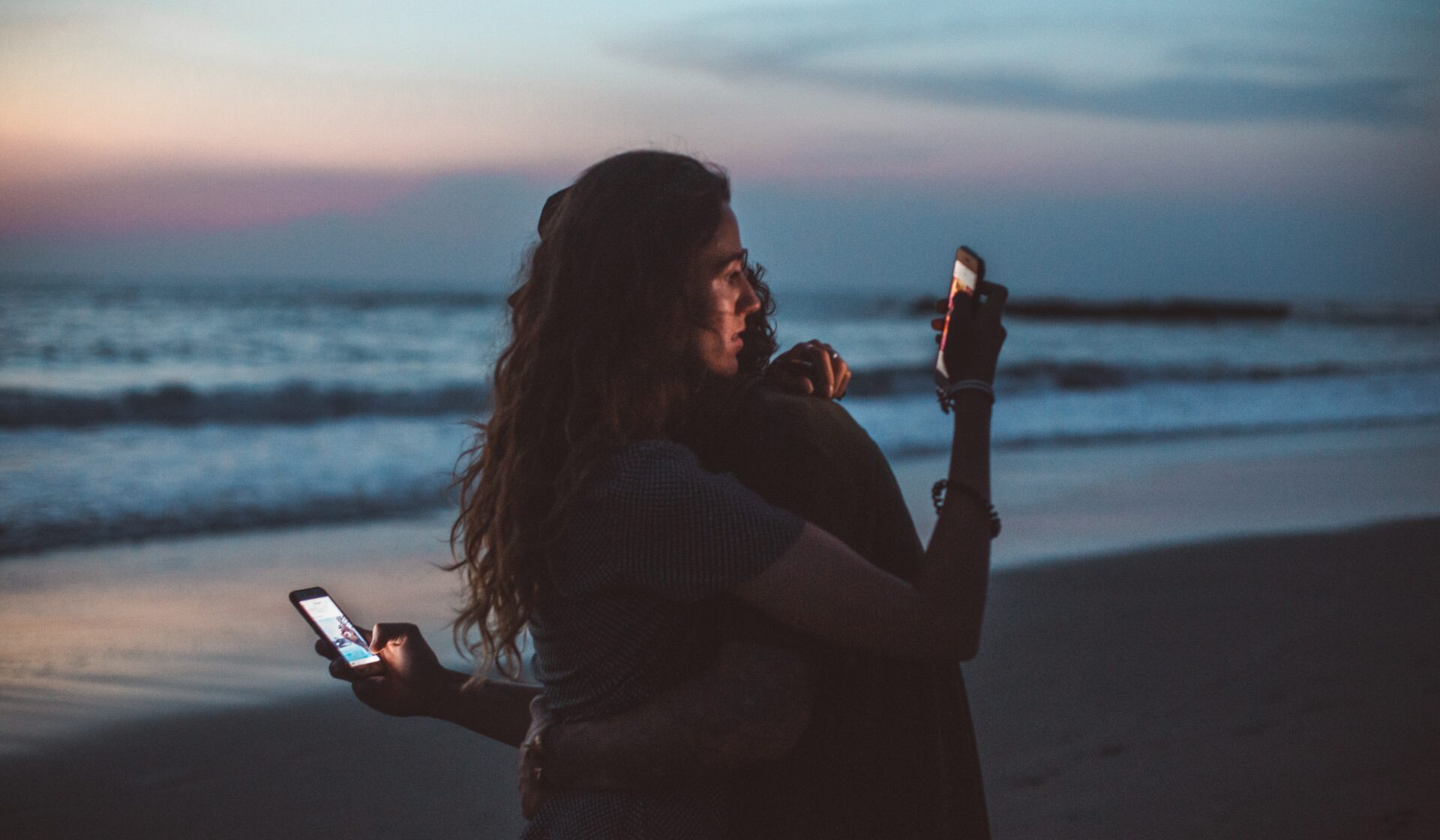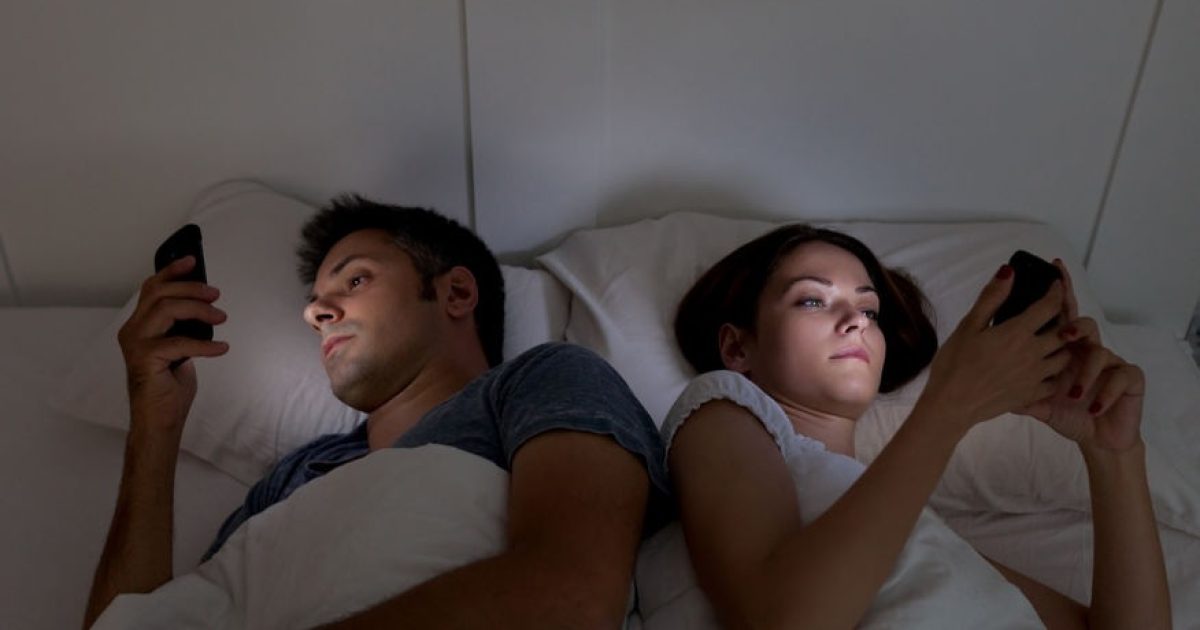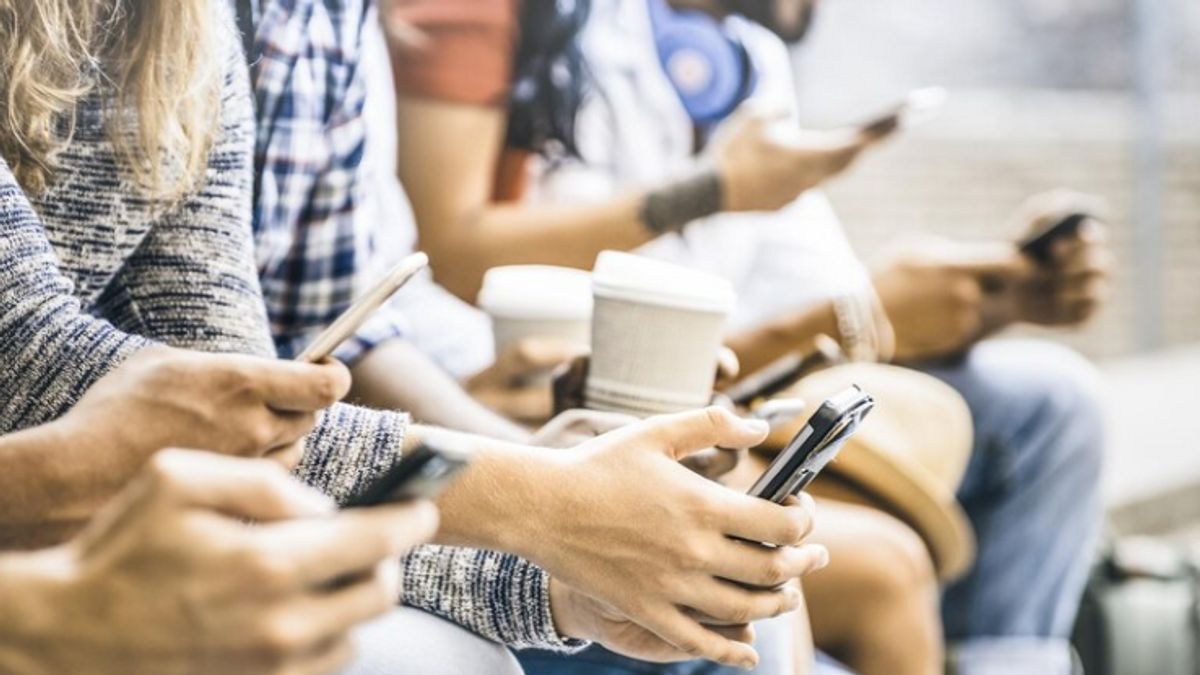New research has uncovered that the phenomenon – whereby couples ignore each other in favour of their digital devices – is leading to increased conflict and reduced intimacy. While this may seem obvious, it’s taken a pair of psychologists to make us notice.
In this day and age, we’re all aware of how technology originally designed to strengthen connectivity has actually begun to do the opposite.
Made apparent by dating app fatigue, the growing tendency of digital devices to drive rifts between us is now impacting our IRL relationships.
This is according to new research which has shed light on a modern phenomenon called ‘phubbing.’
For the unfamiliar, the term is a portmanteau of ‘phone’ and snubbing’ – in other words, when you ignore who you’re with in favour of scrolling endlessly on social media, replying to messages that really aren’t that urgent, and browsing the web.
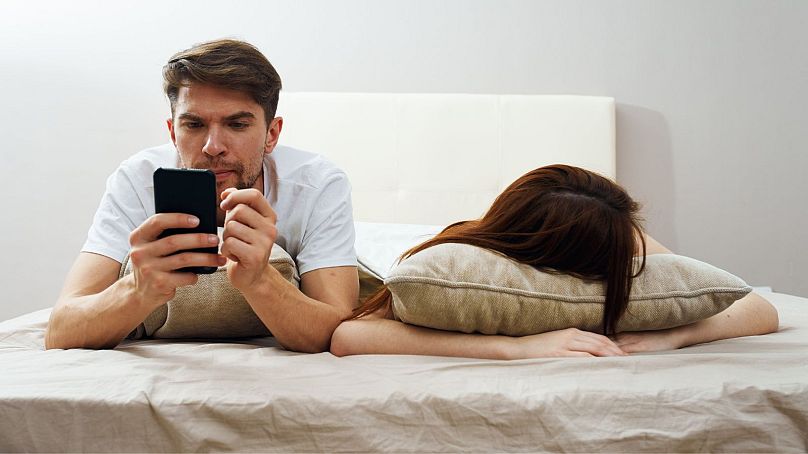
While it may seem obvious that couples are suffering as a result, it’s taken a pair of psychologists at Niğde Ömer Halisdemir University to bring the issue to public attention.
In a recent study, they assessed 712 married adults from cities in the Central Anatolian region of Turkey to measure the correlation between their ‘phubbing’ habits and their levels of marriage satisfaction (judged by linked factors such as effective listening, empathy, and self-revelation).
Investigating the negative repercussions of this behaviour, they found it to be closely tied with increased conflict and reduced intimacy.
‘Individuals may have some expectations such as making eye contact, resting effectively and receiving feedback during mutual communication,’ wrote authors Suat Kılıçarslan and İzzet Parmaksız.
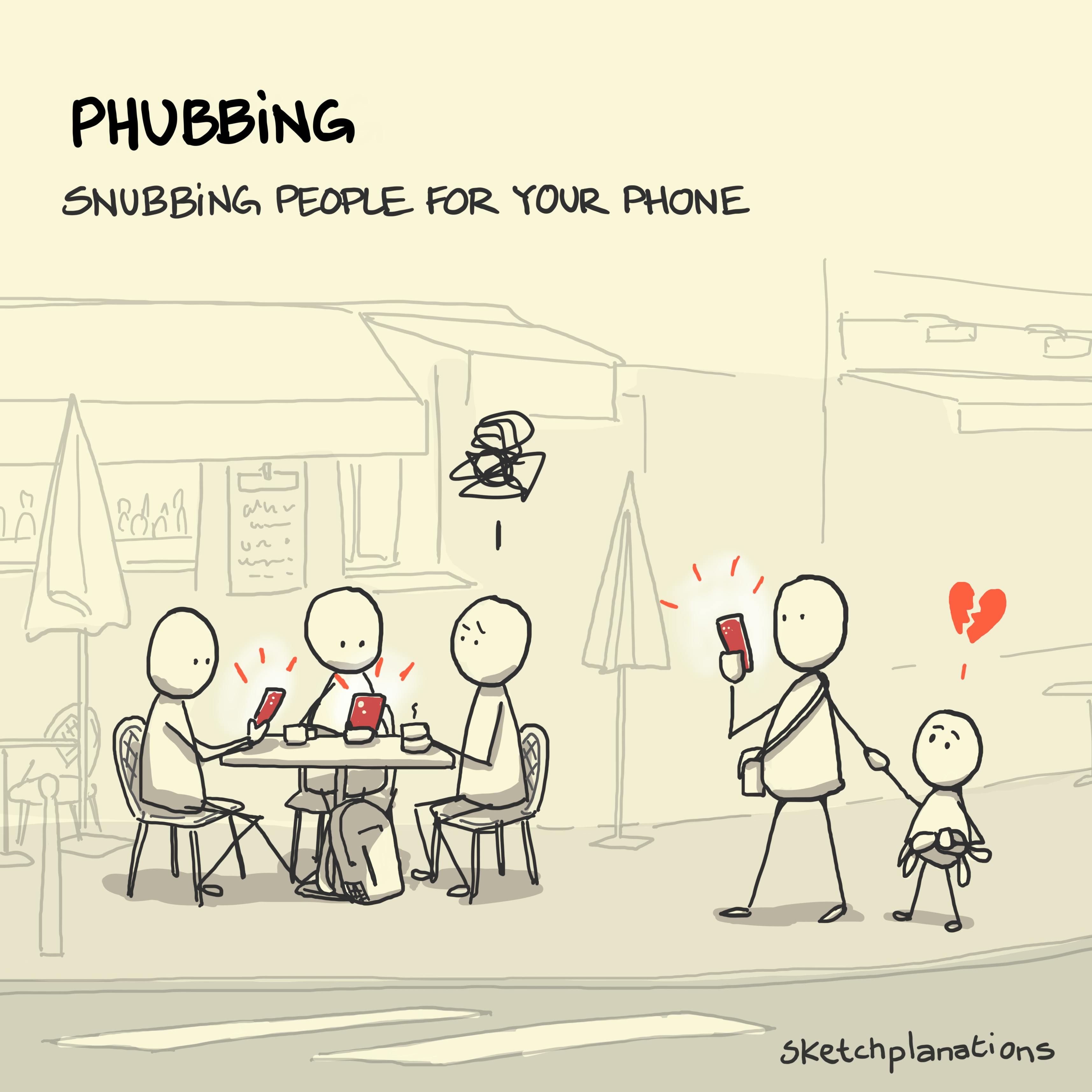
‘In the case of phubbing, these expectations are not met, causing the phubbed partner to experience negative emotions and consider their partners rude and negligent.’
‘In this study, it was determined that phubbing behaviours of married individuals predicted marital satisfaction negatively and significantly,’ reads the report’s conclusion, which makes a lot of sense: nobody is going to be satisfied with any kind of relationship where one party constantly disregards the other to stare at their phone like a dopamine-starved zombie.
So why is it so common?
As explained by Karen Douglas, lead researcher of a 2016 deep-dive into how ‘phubbing’ became widely accepted as the norm, because of internet addiction, diminishing self-control, and the fear of missing out (FOMO).









